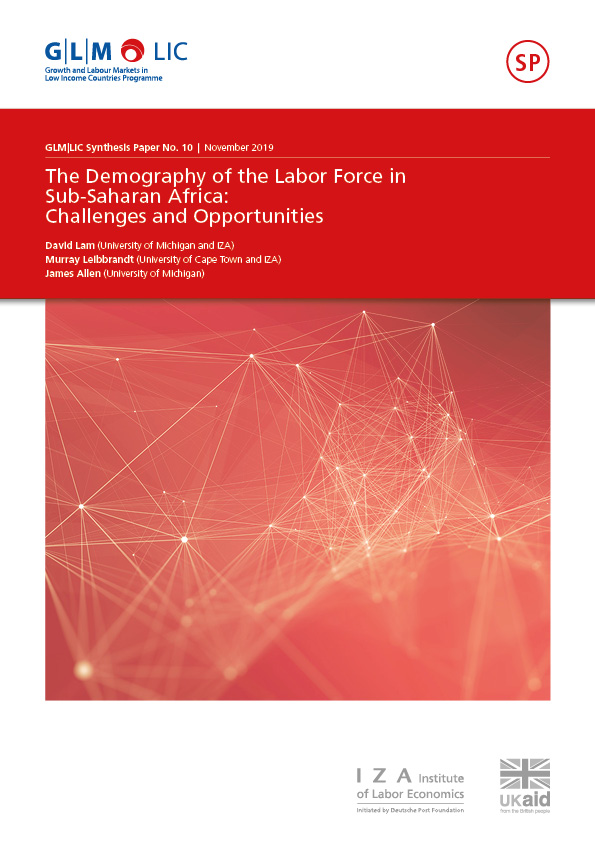The world is projected to add 3.1 billion people to the total population and 1.4 billion people to the working-age population between 2020 and 2100. Almost all of the additional working-age people will be added in Sub-Saharan Africa, a dramatic change from previous decades, when the growth of the working-age population was concentrated in Asia. This paper analyzes the demography of the African labor force in the coming decades using the latest United Nations population projections. We show that by 2050 Africa will be the only region in the world with a growing working-age population, and will be the only region in which the ratio of dependents to working-age population is falling. These dramatic differences between Africa and other regions are the result of Africa’s later and slower fertility decline, with fertility still high in many countries. The continued growth of Africa’ working-age population creates both opportunities and challenges. On the one hand, being the only region with a growing working-age population may create opportunities for investment and economic growth. On the other hand, Africa will need to produce 2 million jobs per month by 2040 to keep up with the growth of the working-age population. This will be one of the biggest challenges facing the continent in the coming decades.

The Demography of the Labor Force in Sub-Saharan Africa: Challenges and Opportunities
- David Lam
- Murray Leibbrandt
- James Allen